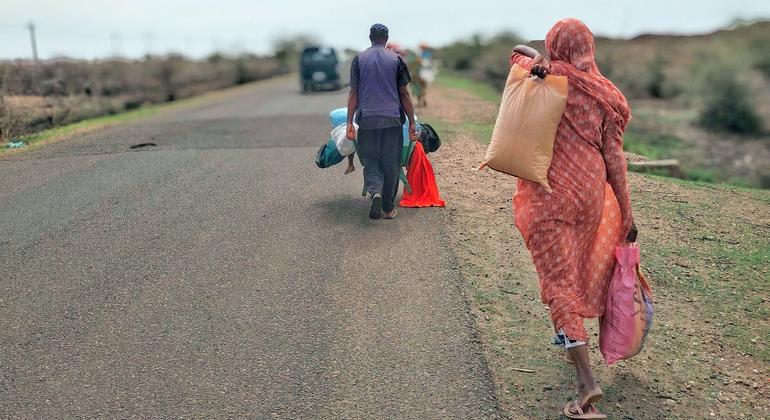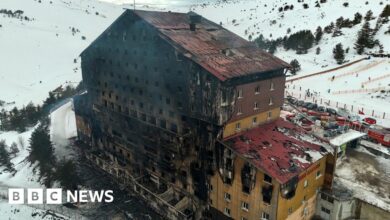Sudan: 800,000 people still trapped in El Fasher, where supplies are running low, WHO warns


In a warning, Dr. Shible Sahbani, WHO Fierce fighting between Sudan’s rival military forces has made access to El Fasher “completely impossible”, the country’s envoy to Sudan said, as the country’s warring sides continue talks in Geneva.
The latest warning of a state of emergency comes 15 months after fierce clashes broke out between rival military forces in Sudan over a proposed transition to civilian rule, following a 2021 military coup and the 2019 overthrow of longtime President Omar Al-Bashir.
Millions of people forced to evacuate
“The countries of Darfurs, Kordofans, Khartoum and Al Jazira are all cut off from humanitarian and medical aid due to relentless fighting.“, a WHO official told reporters in Geneva. “The situation in Darfur is particularly alarming, where places like El Fasher…The injured cannot receive the emergency care they need; children and pregnant and lactating women are weakened by acute hunger“ .
Much of Sudan has been affected by fighting after heavy weapons and fighter jets spread from the capital Khartoum to other regions and states, including Darfurs, located in the west of the vast country.
In addition to calling on warring parties to ensure the protection of civilians, aid groups and public infrastructure including hospitals in accordance with international humanitarian law, the WHO official stressed that access is “needed immediately so we can prevent a catastrophic health situation.””.
Relief goods are being shipped.
Existing health care stocks have been used to supply some hospitals in El Fasher, but “it is not enough and it is not sustainable”WHO official stressed, adding that the United Nations aid coordination office, OCHANegotiations are continuing with the warring parties to allow relief supplies to be transported by truck wherever possible.
“As we speak, I have seven trucks moving from Kordofans to Darfur… and just yesterday we got approval for them to move to Darfur,” Dr Sahbani said, adding that there were also “good signs” of cross-border aid movements from “all different parties”.
“But again, that is not enough, because we have to deal with these cases on a case-by-case basis… We need more support domestically with the different warring parties, but we also need support with the major countries, with those who have some influence on the situation.”
Dr Sahbani said that while he was on an assessment mission in neighbouring Chad last week, desperate refugees told him that “The main reason they left Sudan at this time was hunger, famine…They said it was not because of insecurity, not because of lack of basic services, but because we had nothing to eat there.”
A WHO official described his shock when a woman who fled Darfur and arrived in Adré just beyond Chad’s eastern border told him that “anything we use to produce [food] locally, to eat, was taken by the militants.” She walked for three days with her children in search of safety, with no food throughout the journey.
The Geneva Conference focused on
Dr Sahbani warned that the humanitarian response in Sudan was only 26 per cent funded as he described the emergency as “one of the worst in the world”.
Humanitarian access and protection of civilians were among the key points discussed at UN-led talks between representatives of the Sudanese Armed Forces and the paramilitary Rapid Support Force that began last week in Geneva, chaired by the UN Secretary-General’s Personal Envoy to Sudan, Ramtane Lamamra.
UN spokeswoman in Geneva, Alessandra Vellucci, told journalists that both delegations were “engaged” and that Mr Lamamra and his team had had multiple interactions with each delegation throughout the week.
“If we don’t get it [a] “If there is a ceasefire, at least we can protect civilians and open humanitarian corridors,” Dr. Sahbani noted.



